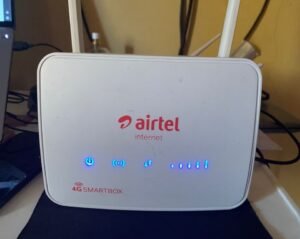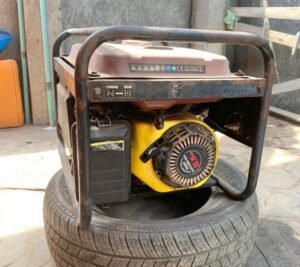
Hello Africa,
Have you ever wondered what it takes to set up a lightning node in a country with slow internet and unstable electricity? Buckle up, because I’m about to take you on a thrilling ride through my adventure of setting up the first active lightning node in Nigeria.
Let’s dive into my incredible journey of overcoming obstacles and embracing the fellowship within the Bitcoin community as I pursued the dream of establishing a lightning node in Nigeria. Join me as I recount my experience, from the frustratingly slow internet to the unexpected joys of togetherness within the Bitcoin community.
My adventure began in early December 2022, and let me tell you, it was a mix of excitement and nerves! Sure, I had a bit of experience running a lightning node on Voltage Cloud, but setting it up on my own local machine or server? That was a whole new level of challenge!
So, like any modern-day explorer, I turned to YouTube for guidance. And there it was, my virtual saviour: the Ministry of Nodes YouTube channel. It had this fantastic playlist, a complete guide that covered everything from downloading and setting up a Bitcoin node to an Lnd node, and even getting my hands on node management software like Thunderhub and Ride the Lightning. It was like finding a treasure map in the digital world!
Armed with this guide, I embarked on my journey, with no prior knowledge of the Linux command-line and no idea what obstacles lay ahead. Oh boy, there were challenges, alright! From deciphering technical jargon that seemed like a secret code to dealing with unexpected crashes and errors, it was like navigating through a dense jungle of tech troubles.
The Frustration of Snail-Like Internet

Setting up a lightning node requires downloading the entire Bitcoin blockchain, which is no small task even in countries with blazing-fast internet. However, in Nigeria, where internet speeds are less than ideal and can be quite expensive, it felt like I was watching a turtle race while waiting for the download to complete.
Patience became my closest companion during this stage, and I soon realized that a slow download was just the beginning of my adventure. This problem forced me to embark on another research to use a pruned node instead of a full bitcoin node. Unfortunately, there was no YouTube guide on this, but I came across this article. It was very handy. So, I immediately switched to a pruned bitcoin node, by downloading a snapshot of a pruned node and skipping the never-ending blockchain synchronization.
Navigating the Electricity Rollercoaster

As if the sluggish internet wasn’t enough, Nigeria’s notorious electricity grid added another layer of complexity to my journey. Frequent power outages meant that I had to find a reliable backup solution. Enter the trusty generator, which became the unsung hero of my lightning node setup. Although relying on a generator felt like paying for electricity twice, I knew it was necessary to keep the node running without interruptions, and I was determined to set it up. This was a lesson in resourcefulness and adaptability – traits that any lightning node enthusiast in Nigeria needs to possess.
The Peer Connection Problem
I thought I was on the path to success after conquering the slow internet and electric rollercoaster. However, I encountered a puzzling problem with peer connections. I was new to all this and felt like I was in a never-ending maze. After multiple attempts and countless forums scoured, I was still no closer to a solution.
But then, @eliotcougar answered my cry for help on Twitter. With vast knowledge and a willingness to guide a fellow node enthusiast, @eliotcougar provided invaluable assistance. We found an alternative solution that worked like a charm. This experience taught me the true power of collaboration within the Bitcoin community.
Triumph and Growth
After countless trials and tribulations, our NigeriaFreeRouting node emerged victorious! With over 50 channels and 3 BTC in total capacity, we proved that setting up a lightning node in Nigeria is possible, no matter how challenging it may seem. This achievement filled us with pride, knowing that we had become pioneers in the Nigerian Bitcoin landscape.
Conclusion
The road to implementing the Lightning Network in Africa is undoubtedly challenging. However, these challenges are not insurmountable, and the benefits that the Lightning Network can bring to Africa could be transformative. For millions of people in Africa, the Lightning Network’s potential goes beyond just technology – it represents financial freedom and inclusivity, a beacon of hope in the continent’s dynamic economic landscape. In our upcoming blog post, ‘The Lightning Network’s Role in Africa’s Fintech Revolution,’ we will delve deeper into the Lightning Network’s potential impact on Africa’s financial sector. Stay tuned!
SIGN UP FOR OUR WEEKLY NEWSLETTER
"*" indicates required fields
GET UPDATES ON OUR LATEST BLOG POSTS
Subscribe with your favorite RSS reader (eg, feedly) to get updates on our latest blog posts. Simply click the ‘RSS‘ button above and paste the url link in the reader to subscribe.


